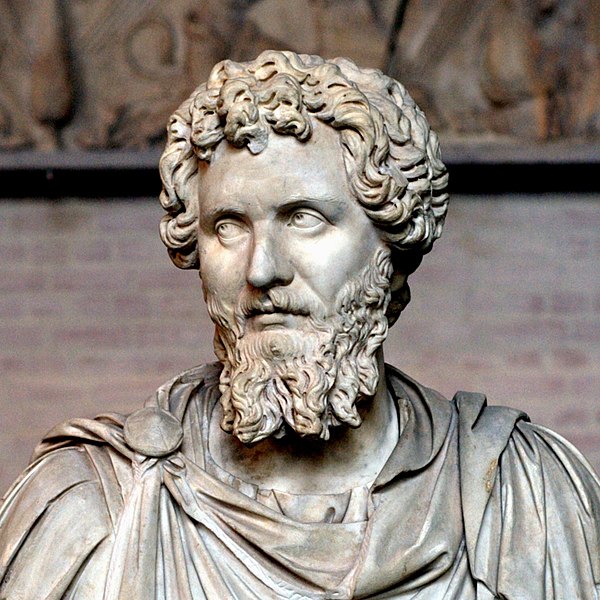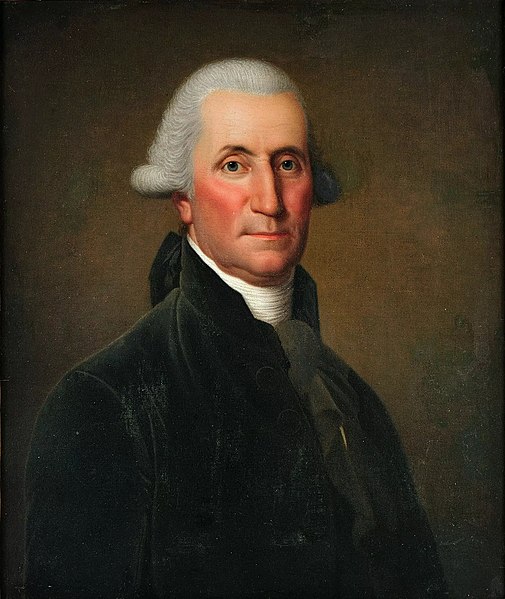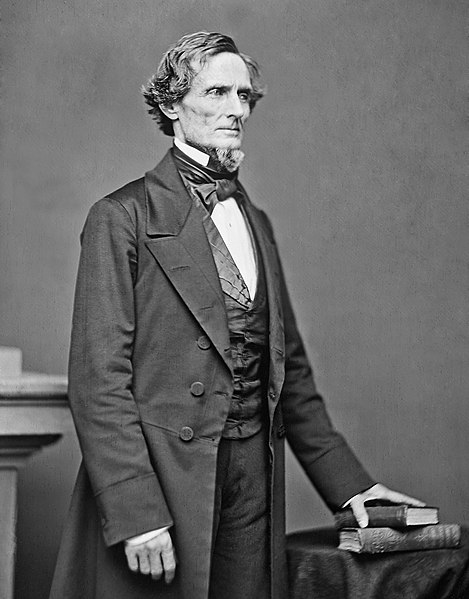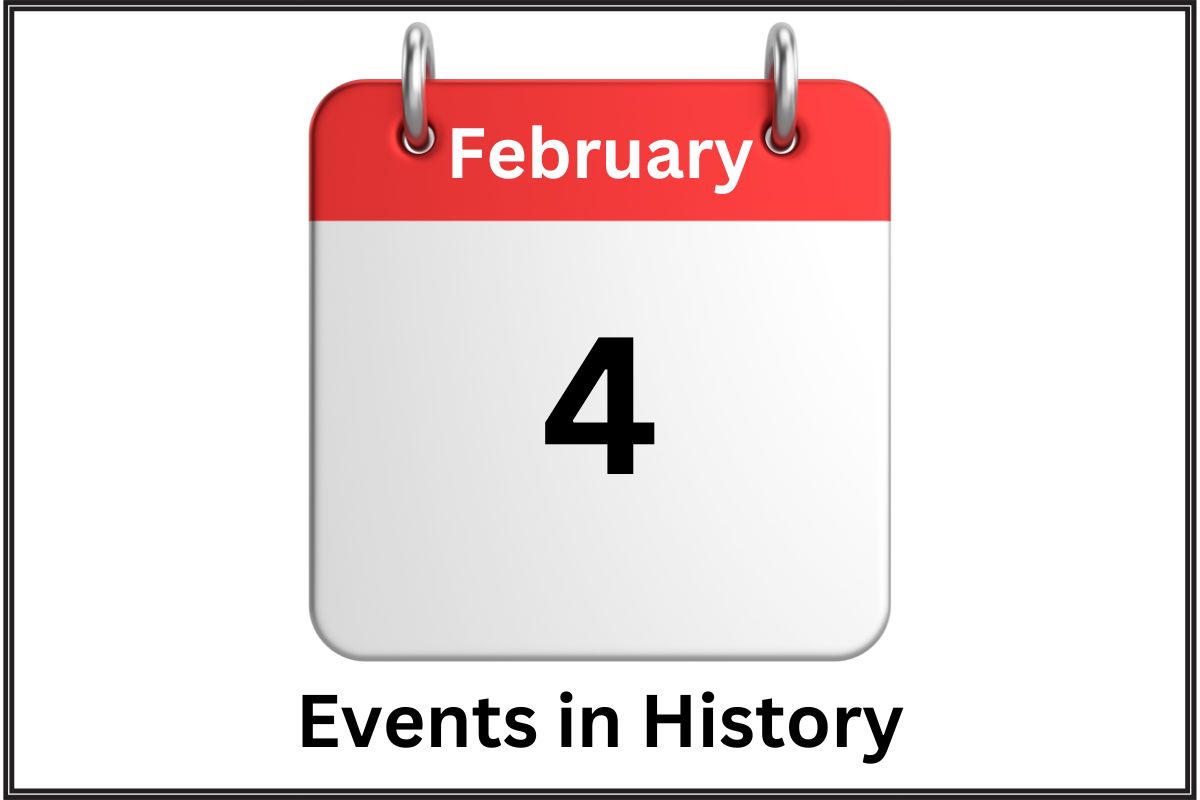In this article, we journey through the annals of history to explore a curated list of 20 significant events that transpired on February 4th across various years.
From the demise of Roman emperors and the establishment of dynasties to pivotal battles for independence and groundbreaking scientific discoveries, each event has left an indelible mark on the fabric of global history.
We delve into moments that shaped political landscapes, sparked social change, and advanced human understanding and innovation.
This chronological voyage not only highlights the diversity of human achievement and adversity but also reflects on the interconnectedness of past actions and their lasting impact on our present and future.
February 4th Events in History
211 – Roman Emperor Septimius Severus dies, leaving the Roman Empire in the hands of his two quarrelsome sons, Caracalla and Geta
Roman Emperor Septimius Severus passed away on February 4, 211, in Eboracum (now York, England) while on a campaign in Britannia. His death marked the end of his nearly two-decade reign, which had begun in 193 AD.
Also Read: February 3 – On this Day in History
Severus was succeeded by his two sons, Caracalla and Geta, who were advised by their father to settle their differences and pay the soldiers well. However, their joint rule was short-lived due to their mutual hostility, culminating in Caracalla’s murder of Geta later that year.
Severus’ death led to the Severan dynasty’s eventual decline, a period marked by political instability and civil war in the Roman Empire.

960 – The coronation of Zhao Kuangyin as Emperor Taizu of Song, initiating the Song Dynasty period that would last more than three centuries in China
On February 4, 960, Zhao Kuangyin, a military general during China’s Five Dynasties and Ten Kingdoms period, was proclaimed Emperor Taizu of Song. This event marked the beginning of the Song Dynasty, which would last over three centuries until 1279.
Also Read: February 5th Events in History
Taizu came to power through a coup, known as the Chenqiao Mutiny, where his troops insisted he take the throne to prevent further war and bloodshed among the competing states.
Under his reign, Taizu successfully reunified much of China, centralized power, and initiated reforms that laid the groundwork for a period of significant cultural, economic, and technological advancements in Chinese history.
1783 – Britain declares a formal cessation of hostilities with its former colonies, the United States of America
The British Parliament passed the American Prohibitory Act on February 4, 1783, formally declaring the end of hostilities with the American colonies, effectively acknowledging American independence.
This act followed the 1781 American victory at Yorktown and preceded the signing of the Treaty of Paris in September 1783.
The cessation of hostilities paved the way for the conclusion of the Revolutionary War, during which the United States secured its independence from British rule, leading to the establishment of a new nation based on democratic principles and enlightenment ideals.
1789 – George Washington is unanimously elected as the first President of the United States by the U.S. Electoral College
On February 4, 1789, the United States Electoral College unanimously elected George Washington as the first President of the United States.
Washington, a hero of the American Revolutionary War and the presiding officer at the Constitutional Convention of 1787, was the unanimous choice of the electors from the 10 states that cast votes.
Washington’s election set the precedent for the peaceful transfer of power and the establishment of the executive branch of the U.S. government. He was inaugurated on April 30, 1789, in New York City, then the capital of the United States.

1794 – The French legislature abolishes slavery throughout all territories of the French Republic
On February 4, 1794, the French National Convention, the revolutionary assembly of France, voted to abolish slavery in all territories of the French Republic. This was a landmark decision in the history of the French Revolution, which had begun in 1789 with the aim of establishing liberty, equality, and fraternity.
The decree not only liberated all enslaved people in French colonies but also granted them equal citizenship. However, this radical measure was short-lived; Napoleon Bonaparte reinstated slavery in French colonies in 1802. Slavery would not be permanently abolished in French colonies until 1848.
1801 – John Marshall is sworn in as Chief Justice of the United States
John Marshall was sworn in as the Chief Justice of the United States on February 4, 1801. His appointment by President John Adams represented a pivotal moment in American legal history.
Marshall served in this role until his death in 1835, making him the longest-serving Chief Justice in U.S. history. His tenure is noted for laying the foundation of American constitutional law and establishing the judiciary as a co-equal branch of government alongside the executive and legislative branches.
Perhaps his most famous decision was in Marbury v. Madison (1803), which established the principle of judicial review, affirming the Supreme Court’s ability to declare acts of Congress unconstitutional.
1825 – The Ohio Legislature authorizes the construction of the Ohio Canal, to connect Lake Erie with the Ohio River
On February 4, 1825, the Ohio Legislature authorized the construction of the Ohio Canal, a project aimed at facilitating the transportation of goods and people. The canal was part of the broader canal-building boom in the United States during the early 19th century, inspired by the success of the Erie Canal.
The Ohio Canal connected the Ohio River at Portsmouth with Lake Erie at Cleveland, creating a navigable water route that significantly contributed to the economic development of Ohio and the Midwest. The canal not only made it easier to transport agricultural produce and manufactured goods but also encouraged settlement in the region.
1861 – In Montgomery, Alabama, delegates from six breakaway U.S. states meet and form the Confederate States of America
Delegates from six Southern states that had seceded from the Union (South Carolina, Mississippi, Florida, Alabama, Georgia, and Louisiana) met in Montgomery, Alabama, on February 4, 1861, to form the Confederate States of America (CSA).
This was a pivotal moment leading up to the American Civil War, as these states sought to preserve slavery and assert states’ rights in opposition to the perceived overreach of the federal government.
Jefferson Davis was elected as the provisional president of the Confederacy on February 9th. The formation of the CSA was a direct challenge to the authority of the United States and President Abraham Lincoln, leading to the outbreak of the Civil War in April 1861.

1899 – The Philippine-American War begins with the Battle of Manila
The Philippine-American War, a conflict between the United States and Filipino revolutionaries, began on February 4, 1899. The conflict arose from the Philippines’ struggle for independence and the United States’ attempt to establish control over the islands following the Spanish-American War, after Spain ceded the Philippines to the U.S. in the Treaty of Paris (1898).
The war was marked by fierce guerrilla warfare and significant civilian casualties. It officially ended in 1902, although sporadic resistance continued for several years. The war resulted in the Philippines becoming an American colony, setting the stage for its long path towards eventual independence in 1946.
1932 – The Winter Olympic Games open in Lake Placid, New York
The III Olympic Winter Games opened on February 4, 1932, in Lake Placid, New York. These were the first Winter Olympics held in the United States and only the third Winter Games since their inception.
Despite the Great Depression, athletes from 17 nations competed in 14 events across 4 sports: bobsleigh, ice hockey, speed skating, and skiing, which included Nordic combined and ski jumping for the first time.
The games were notable for introducing the use of artificial snow in Olympic competitions. The United States topped the medal count, reinforcing the country’s growing interest and capabilities in winter sports.
1936 – Radium becomes the first radioactive element to be made synthetically
In 1936, radium became the first radioactive element to be synthesized artificially. This achievement marked a significant milestone in the field of nuclear chemistry and physics. Previously, radium had been isolated from uranium ores through a laborious and costly process by Marie and Pierre Curie in the late 19th century.
The ability to create radium synthetically opened new avenues for research in radioactivity, nuclear reactions, and eventually led to the development of nuclear energy and medical treatments using radioactive isotopes.
This process demonstrated humanity’s growing capability to manipulate atomic and subatomic particles, leading to profound scientific and technological advancements.
1945 – The Yalta Conference between the “Big Three” (Churchill, Roosevelt, and Stalin) begins in the Crimea, shaping the post-World War II world
The Yalta Conference, a meeting of the “Big Three” Allied leaders during World War II—British Prime Minister Winston Churchill, Soviet Premier Joseph Stalin, and U.S. President Franklin D. Roosevelt—began on February 4, 1945.
Held in the Crimean resort city of Yalta, the conference aimed to shape a post-war peace that represented not just a collective security order but a plan to give self-determination to the liberated nations of post-Nazi Europe.
The leaders discussed the re-establishment of nations conquered by Germany, the terms for Germany’s surrender, and the future of Poland, the United Nations, and other geopolitical issues. While the Yalta agreements laid the groundwork for post-war reconstruction and the United Nations, they also sowed the seeds of the Cold War division of Europe.
1948 – Ceylon (now Sri Lanka) becomes an independent kingdom within the British Commonwealth
On February 4, 1948, Ceylon (now Sri Lanka) gained independence from British rule, becoming a dominion within the British Commonwealth. The transition to independence was relatively peaceful, following negotiations between Ceylonese political leaders and the British government. Don Stephen Senanayake became the first Prime Minister of Ceylon.
This marked the end of over 150 years of colonial rule, beginning a new chapter in the nation’s history. Independence came with the adoption of a new constitution but the country remained a dominion of the British Empire until it became a republic within the Commonwealth in 1972, subsequently changing its name to Sri Lanka.
1961 – The Angolan War of Independence begins
The Angolan War of Independence began on February 4, 1961, when militants from the Popular Movement for the Liberation of Angola (MPLA) attacked police stations and public buildings in the towns of Luanda and Uige. This marked the beginning of a protracted struggle against Portuguese colonial rule, which had lasted for several centuries.
The war was characterized by guerilla warfare and significant violence, part of a wider wave of African independence movements against European colonial powers. It lasted until 1975, leading to the eventual withdrawal of Portuguese forces and the independence of Angola.
However, the end of the war for independence segued into a devastating civil war that lasted several more decades.
1974 – The Symbionese Liberation Army kidnaps Patty Hearst in Berkeley, California
On February 4, 1974, Patty Hearst, a 19-year-old university student and heiress to the Hearst newspaper fortune, was kidnapped from her Berkeley, California, apartment by members of the Symbionese Liberation Army (SLA), a left-wing revolutionary group.
The kidnapping attracted widespread media attention, not only because of Hearst’s high-profile status but also because of the subsequent events, including Hearst’s apparent indoctrination into the SLA. She was later seen participating in a bank robbery with her captors.
Hearst’s case became a symbol of Stockholm syndrome, where hostages develop a psychological alliance with their captors during captivity.
After her capture by the FBI, Hearst was initially convicted of bank robbery, but her sentence was commuted by President Jimmy Carter, and she was eventually pardoned by President Bill Clinton.
1976 – In Guatemala and Honduras, a 7.5 magnitude earthquake kills more than 22,000 people
On February 4, 1976, a devastating earthquake measuring 7.5 on the Richter scale struck Guatemala and affected parts of Honduras. The quake resulted in the deaths of more than 22,000 people, making it one of the deadliest natural disasters in Central American history.
The earthquake also left thousands injured and caused extensive damage to infrastructure, including homes, schools, and hospitals, leading to a significant humanitarian crisis.
The disaster highlighted the vulnerability of buildings to seismic activity, prompting improvements in construction standards in the region. International aid flowed into Guatemala and Honduras to assist with rescue operations and the rebuilding of affected communities.
1997 – After at first contesting the results, Serbian President Slobodan Milošević recognizes opposition victories in the November 1996 elections
In 1997, after months of protests and political tension, Serbian President Slobodan Milošević recognized the victories of opposition parties in the November 1996 local elections. These elections had been a critical point of contention, with accusations of electoral fraud leading to widespread demonstrations across Serbia.
The government’s eventual concession was seen as a significant moment in Serbian politics, indicating a crack in Milošević’s authoritarian regime.
The recognition of the opposition’s electoral victories marked a step towards democratic reforms in Serbia, although the country would continue to face political and social challenges, including the Kosovo conflict and NATO intervention in 1999.
2004 – Facebook, a mainstream social networking site, is founded by Mark Zuckerberg
Facebook was founded on February 4, 2004, by Mark Zuckerberg and his college roommates Eduardo Saverin, Andrew McCollum, Dustin Moskovitz, and Chris Hughes at Harvard University. Initially created as a Harvard-only social network, the platform quickly expanded to other universities and eventually to the general public.
Facebook’s growth was meteoric, fundamentally changing the way people interact online. It has since become one of the largest social media platforms globally, impacting social interactions, business, politics, and society at large.
Despite its success, Facebook (now Meta Platforms, Inc.) has faced scrutiny over privacy concerns, data security, and its role in spreading misinformation.
2013 – Scientists confirm the existence of a new chemical element, Ununpentium (later named Moscovium)
On February 4, 2013, scientists confirmed the existence of a new chemical element, temporarily named ununpentium (element 115 of the periodic table). The discovery was a collaborative effort between researchers at the Joint Institute for Nuclear Research in Dubna, Russia, and Lawrence Livermore National Laboratory in California, USA.
The confirmation of ununpentium, later officially named moscovium (Mc) in honor of the Moscow region, added to the understanding of superheavy elements and their properties.
The creation and study of such elements are crucial for advancing nuclear physics, providing insights into the forces and particles that compose the atomic nucleus.
2020 – The World Health Organization (WHO) names the disease caused by the novel coronavirus as COVID-19
On February 4, 2020, the World Health Organization (WHO) announced “COVID-19” as the official name for the disease caused by the novel coronavirus (SARS-CoV-2), which had emerged in Wuhan, China, in late 2019. The name is derived from “CoronaVirus Disease 2019.”
The designation of a specific name was crucial for ensuring effective communication about the disease, avoiding stigmatization, and facilitating the development of standardized diagnostics, treatments, and vaccines.
COVID-19 rapidly evolved into a global pandemic, profoundly affecting health systems, economies, and daily life worldwide, highlighting the importance of international cooperation and public health preparedness.
